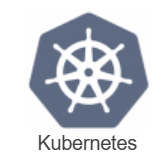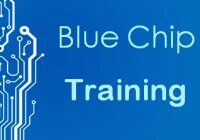 Overview
Overview
Kubernetes can be run on a variety of platforms, from a local server, to a virtual or bare-metal server in the cloud, to a SaaS based cloud service. In all cases, the Kubernetes ecosystem includes tools for installing, managing, and testing Kubernetes clusters.
This instructor-led, live training (online or onsite) is aimed at engineers who wish to evaluate, select and deploy the most appropriate Kubernetes solution for their specific situation.
By the end of this training, participants will be able to:
- Install and configure a Kubernetes cluster on premise and in the cloud.
- Evaluate different cloud-hosted Kubernetes solutions and understand the advantages over a self-hosted approach.
- Compare different tools for testing, managing, and monitoring a Kubernetes cluster.
Format of the Course
- Interactive lecture and discussion.
- Lots of exercises and practice.
- Hands-on implementation in a live-lab environment.
Course Customization Options
- To request a customized training for this course, please contact us to arrange.
Requirements
- An understanding of container and container orchestration concepts.
- Experience with Kubernetes.
Audience
- DevOps engineers
- System administrators
- Developers
- Software engineers
Course Outline
Introduction
Overview of Kubernetes Features and Architecture
Understanding Kubernetes Runtimes, Networking, Scheduling and Orchestration,
Options for Installing, Deploying and Running Kubernetes
- Local Server
- Cloud Server
- Hosted Solution
Assessing the Organization’s Needs
- Existing infrastructure, skill set, maintenance requirements, licensing etc.
Planning a Kubernetes Deployment
- Schedule, cost, talent resources, etc.
Tools in the Kubernetes Ecosystem
- Minishift, MicroK8s, k3s, Ubuntu on LXD, etc.
Kubernetes Local Server (On-Premise) and Cloud Server Solutions
- A simple Docker installation
- Red Hat OpenShift
- Heptio
- Platform9
- Others: Giant Swarm, CoreOS Tectonic, Rancher, etc.
Hosted Kubernetes Platforms
- Google Kubernetes Engine (GKE)
- Azure Container Service (AKS)
- Amazon Elastic Container Service for Kubernetes (EKS)
- Others: AppsCode, AppUiO, DigitalOcean, etc.
Kubernetes Security
- Private network security
- Cloud provider security
- Hosted provider security
Custom Kubernetes Solutions
- Cloud Foundry Container Runtime (CFCR)
- Kubernetes on Ubuntu
- Rancher Kubernetes Engine (RKE)
Integration Solutions
- Third-party schedulers, resource managers, and/or lower level platforms
Avoiding (or Embracing) Vendor Lock-in
- The risks of customizing
- The cost of lock-in
Bringing It All Together
- Business and technical challenges
- Communicating across teams
- Preparing for change
Summary and Conclusion
